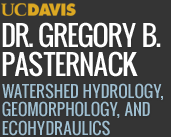Exams
Midterm and Final Exams
- You will take a midterm and final exam in this class.
- The midterm will be abot half as long as the final exam, but both exams will operate under the same approach.
Exam Rules
- Each exam will have a permitted maximum 24-hour duration. Those with accommodations will have an individual time extension beyond that up to their individual specification. Students may take the exam as quickly as they wish within that period, but cannot take longer. This will be a hard deadline with no adjustment. If you have an individual circumstance impacting that 24-hour period, I will require a doctor's note or similar to demonstrate it is real. Then I can make an individual accommodation.
- The exam will be FULLY OPEN. You may use any and all resources you can muster to take the exam. it is fine with me if you use ChatGPT or other AI tools. Realistically, I have few tools to prevent you from soliciting various kinds of help, so I see no point in trying to - with the exception in the next bullet point. Maybe someday technology will enable proper closed exams in a remote mode, but that day is not here. Therefore, you are welcome to communicate privately with each other as much as you want or privately with anybody else. You may also privately message each other and others through private services like email, direct text and voice chat, and other non-public communications. You can view the readings, view the lectures, and view any content you can find any where.I am the only people who you cannot talk to about the content of the exam. I can clarify a question if you need that, but otherwise, do not ask me to answer the questions for you. If you get an answer wrong based on trusting someone else, then that is your problem and you will lose those points, so whatever you do, it's your final decision and consequence for whatever you write down.
- The exam questions themselves are copyright-protected content that I own. You are NOT authorized to publicly post the questions in any format (oral, written, graphic, audio, video, etc) anywhere. That includes prohibition of any website, social media platform (except private direct messaging), video hosting service, course-help service, etc. If I find out that the exam questions are on any public forum, I will submit a complaint to UCD Student Judicial Affairs. I do have access to look for content on all the services (you know what I am talking about!) and I do keep an eye out. A few years ago a student posted my course assignments to a closed service that students use to get "help" (but really to cheat as most universities define cheating), and that student was subjected to consequences, so it really is not worth it- you are likely to get caught. Please- it is enough that I am making this open for you and giving you freedom to seek help among your private means, so respect the course and my efforts to craft high-quality content by not violating policies and your honor code to post content publicly.
- There will be a class period at the date and time indicated on the syllabus in which you may choose to come to the normal assigned classroom and work individually or in groups to work on the exam; this will be an open working session.
- The exam will be designed such that a student can earn an A on it were they to take it in a closed book, no-help mode in just 50 minutes. In other words, while it may be designed somewhat differently from a traditional in-class exam, it will function equivalently and set the same expectation of workload. Per Carnegie Rules, the exam counts as 1 work hour, because that is how it is designed. Now, if you choose to spent 23 hours taking the exam, then that's your choice, but by design it is intended for 50 minutes. In other words, if you were to study for the exam upfront as you would any other exam, you could complete it efficiently in 50 minutes. If you do not study in advance and try to essentially study on-the-fly for just what is needed for the exam, then the odds are it will take several hours to do a 50-min exam, I am thinking. I do not think Carnegie Rules account for the amount of time student choose to spend studying for exams; one person might study for 3 days straight and another for 1 hour. I think that same reality applies for an open-everything exam. I design it for a 50-minute, high-stress class period, but you end up doing it at the pace you feel comfortable with.
- Each exam will be administered on Canvas. I will set up an exam with a set of questions and you will submit your answers on canvas. The format will be predominantly short answer and short essay.
- Because each exam is open, I am NOT going to give a practice exam or practice questions.


